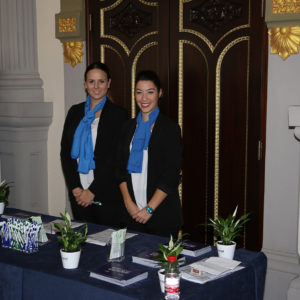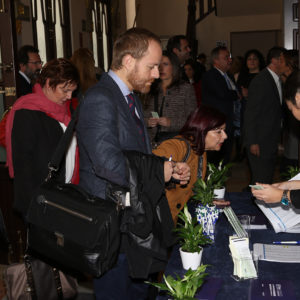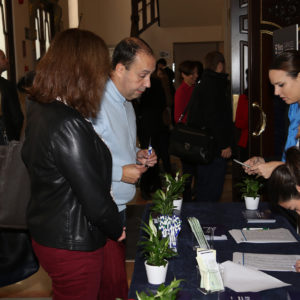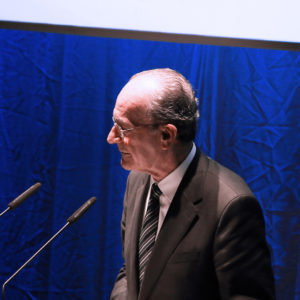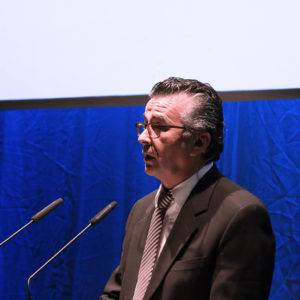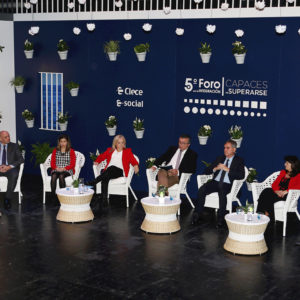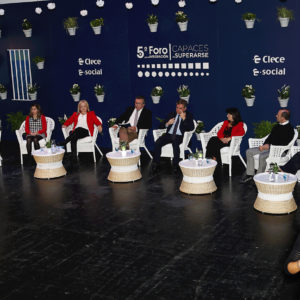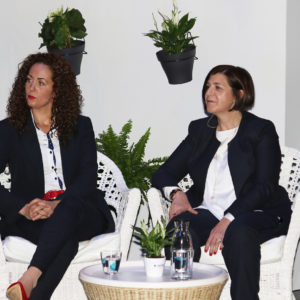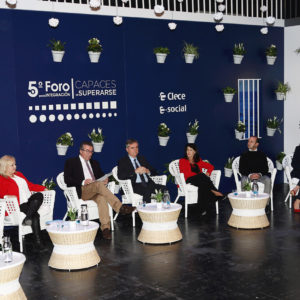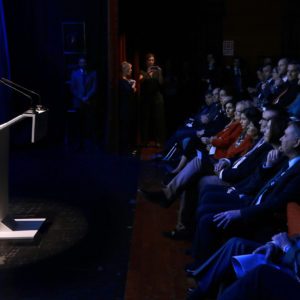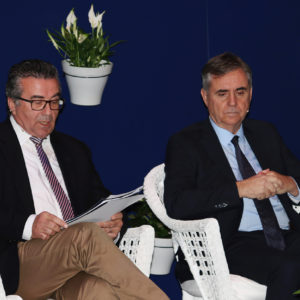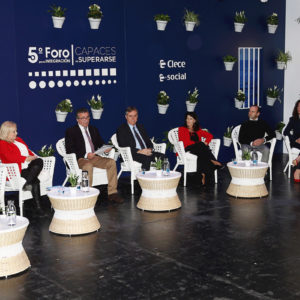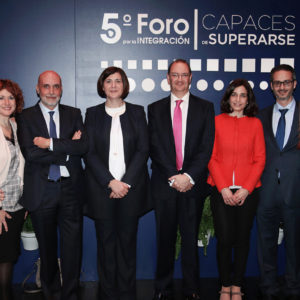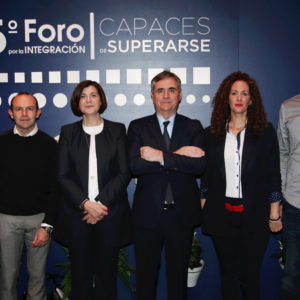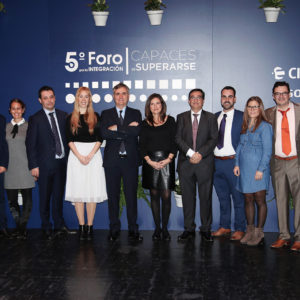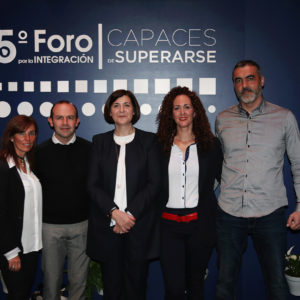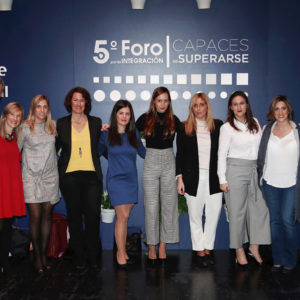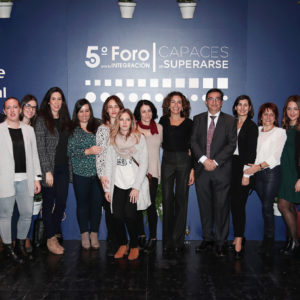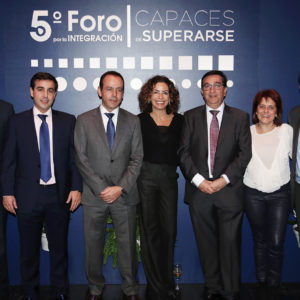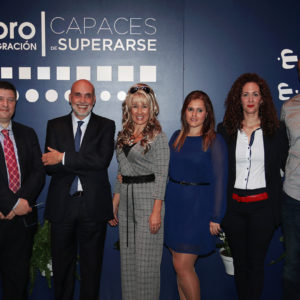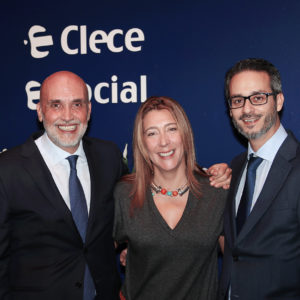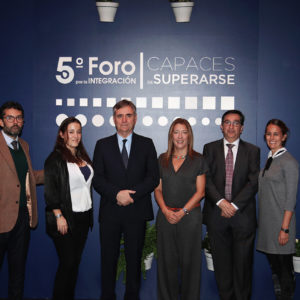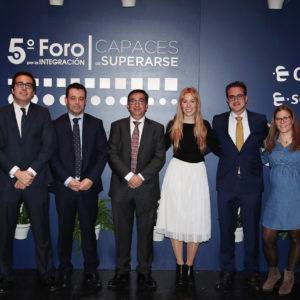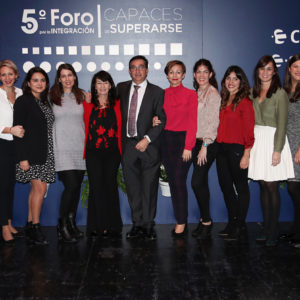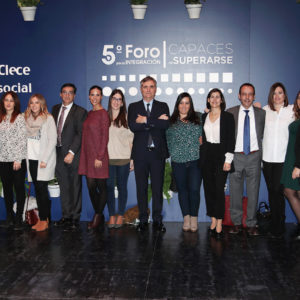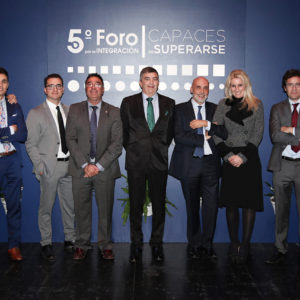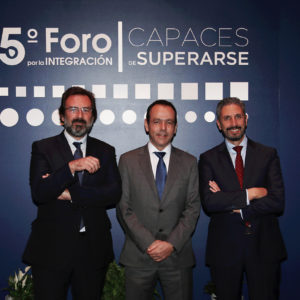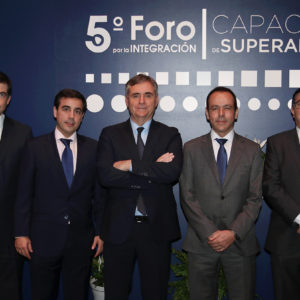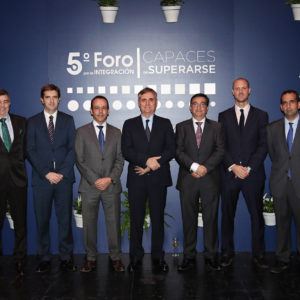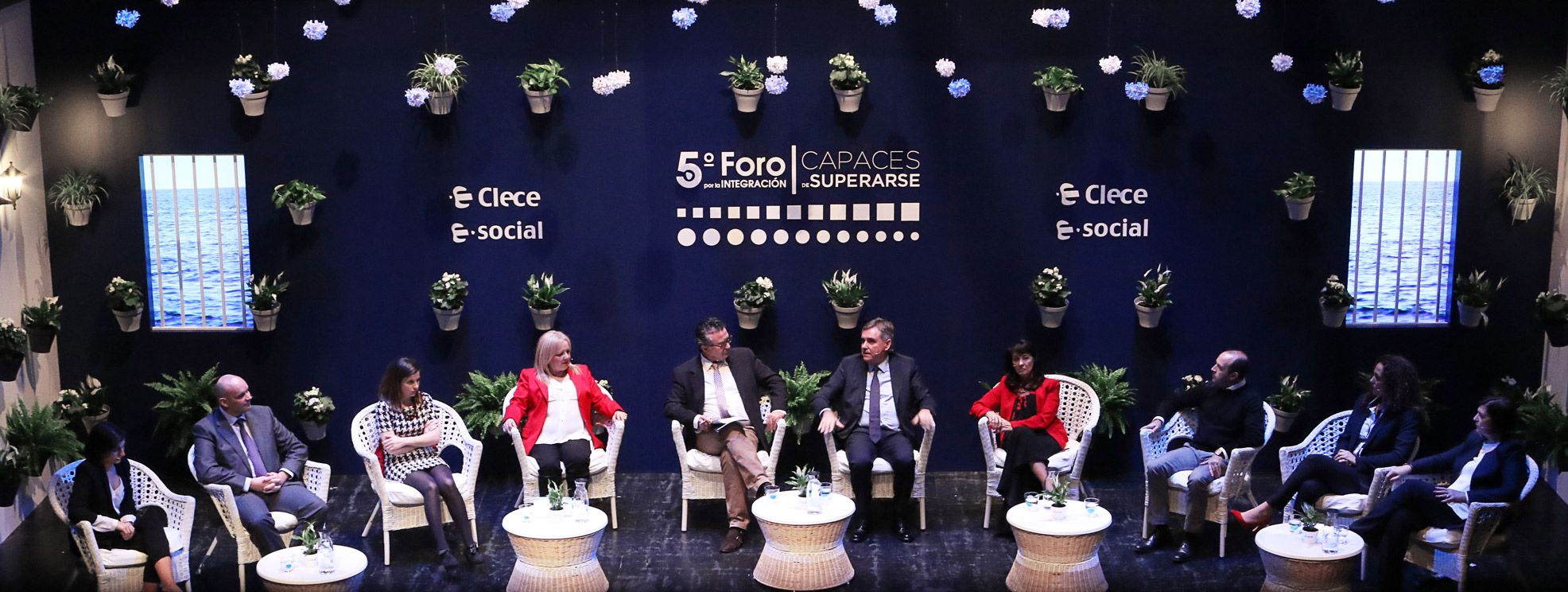
"Stereotypes must be overcome so that those with disabilities have equal employment opportunities".
Activity and unemployment rates for this collective are clearly negative in comparison with the entire population
Lack of information and a poor match between candidates and positions offered create limitations which make hiring people with disabilities difficult
Lack of knowledge and a poor match between profiles and positions, plus mistaken perceptions on the part of business people, are the principal limitations for people with disabilities in obtaining equality of opportunity in accessing the workplace. This is one of the main conclusions drawn from the “Clece for Integration” Forum V, entitled “The Capacity to Do Better“, which took place last Tuesday at Malaga’s Echegaray Theatre. The Forum, organized by Clece, brought together different actors involved in the workplace integration of people with disabilities to talk about employment barriers and opportunities for this collective.
The event was opened by Francisco Manuel de la Torre Prados, the Mayor of Malaga, who thanked Clece for choosing Malaga as the location for the fifth edition of the Forum. Speakers at the event were Francisca Bazalo Gallego, Deputy Mayor and Councillor for the Accessibility Area of Malaga Town Hall and a Para-Olympian; Ana Maria Jiménez Bartolomé, Technical Director for Social Services and Help Centres of the Malaga Deputation; Cristina San Millán Valls, Director of the Evaluation and Orientation Centre at Malaga and Councillor responsible for Accessibility at the Andalusian Regional Government; Miguel Ángel de Pedro, Coordinator for the Eastern Region of the Adecco Foundation; Cristóbal Valderas Alvarado, Clece’s President; Purificación González Pérez, Clece’s Director of Human Resources; and Lola Torre Montilla, Manager for Home Help Services [SAD] Coordination at Malaga Town Hall. Laura Ramos Nuñez and Antonio Bueno Tejado, both workers with disabilities, also spoke at the event.
The Forum highlighted the inequality of workplace conditions for the disabled collective when compared to the whole population. According to data for 2014, while the unemployment figure for the entire Spanish population was 20.3%, for those with disabilities, this rose to 32.2%. The unemployment rate for young people with disabilities reached 67.6% Within this context, more than 81% of companies fail to meet the integration quota established by Law, which states that 2% of workers should be those with disability.
Francisca Bazalo Gallego, Deputy Mayor, Councillor for the Accessibility Area of Malaga Town Hall and a Para-Olympian, pointed out mismatch of profiles as one of the causes. “It is not easy to foster workplace integration as historically speaking, people with disabilities have not had access to the right training. This means that we have not been prepared to fill specific positions. But times are changing and now we have to request that they give us the opportunity to get to know us”.
Ana Maria Jimenez Bartolomé, Technical Director for Social Services and Assistance Centres at the Malaga Deputation, confirmed that specifically in the case of the Deputation “the legal requirement to hire 2% of the workforce from people with disabilities has been superseded and is now at 7%. Positive measures are encouraged, such as favouring those companies for public contracts which under equivalent economic conditions have the greater number of employees with disabilities”.
Cristina San Millán Valls, Director of the Evaluation and Orientation Centre at Malaga and Councillor responsible for Accessibility at the Andalusian Regional Government highlighted “the positive pre-disposition of this collective” when it comes to seeking employment and also the “priority which should be given to evaluating employment issues, as it is employment which is key to integration”.
For Miguel Ángel de Pedro, Coordinator for the Eastern Region of the Adecco Foundation, a lack of knowledge is one of the main limitations. “What is unknown provokes fear and fear provokes rejection. It is very important to achieve match between the person and what the company can offer”.
229 workers with disabilities at Clece Malaga
The Forum forms part of Clece Social, the company’s social project, which focuses on collectives which are socially disadvantaged such as people with disabilities, people at risk of social exclusion, women who have suffered gender-based violence, and young long-term unemployed people as well as collectives with special needs such as children and the elderly. The company has four lines action for these groups: Employability, Integration, Awareness-Raising and Care for People.
Within this context, work on workplace integration progressed by Clece means that more than 9.8% of its own workforce comes from these collectives. Of its 73,852 employees at national level, 7,300 workers are integrated and of these, 5,194 have some type of disability. There are 4,163 Clece employees working in Malaga, 327 from disadvantaged collectives, and 229 with some type of disability.
Antonio Bueno Tejado and Laura Ramos Nuñez are two of these workers. Antonio, who has a sensory disability caused by 37% hypoacusis in his left ear, the result of an accident, works as a Maintenance Technician for Fuengirola Town Hall. For Antonio “you have to see disability as a trampoline into employment. At 45 years old, my disability opened the way for me to find work”. Laura Ramos Nuñez, who also has a 65% hearing disability, told the audience how many people with disability have to confront what she christened as “learned helplessness” or the negative effect of the ” numerous occasions they tell you that you aren’t worth anything and that makes you give up”. Now Laura is an auxiliary for the Home Help Service at the Malaga Town Hall as part of Integra CEE.
The President of Clece, Cristóbal Valderas Alvarado stated that “To achieve success stories such as those of Antonio and Laura and reach more than 9.8% integration within the workforce, stereotypes have to be broken, the capabilities of workers recognized, and not their disabilities. This is no easy process, but big companies have the responsibility to open the way and remove barriers which mean we can normalize the hiring of this collective”. He also commented that “the inclusion of social clauses in public contracts is a positive way to facilitate the integration of this collective”. He also noted that “training people with disabilities is basically done through Foundations and Associations, therefore collaboration with more than 350 entities is fundamental for the Clece project.
Clece’s Director of Human Resources, Purificación González Pérez, insisted on the need to “for all parties involved to break barriers and stereotypes. The interview candidate must reveal their disability and the company must understand the advantages which hiring them brings. And through Selection you have to look at which profile is the most suitable”. Other key factors in making integration a lasting and robust project are “working closely with the worker through their induction, subsequent follow up, and awareness-raising and involvement of all employees in the project.”
Lola Torre Montilla, Manager for Home Help Services Coordination at Malaga Town Hall, highlighted the importance of colleague involvement as “the experience is very positive and in the end, you see no difference between workers with a disability, and those without”.
Awareness-Raising for Mobilization
Together with its important integration work, Clece Social makes significant efforts in awareness raising around the social reality which such socially vulnerable collectives’ experience. It therefore supports third party social initiatives, such as workshops, popular races or campaigns, in addition to promoting its own initiatives. Amongst the most notable are the Premios Compromiso [Commitment Awards], Forum-Colloquiums, and the web portal www.clecesocial.es. Malaga hosted the fifth Forum-Colloquium on integration, with previous events taking place in Madrid, Valencia, Las Palmas on Gran Canaria and Valladolid, dedicated respectively to gender-based violence, exclusion, and socially vulnerable collectives.































